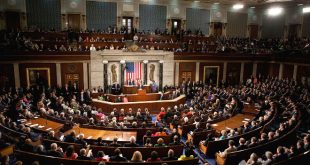Judge Amy Coney Barrett likely will be the next U.S. Supreme Court justice. Democrats know it, which is why lawmakers are using the hearing as a campaign opportunity for the upcoming election.
During Day Two of the confirmation hearing, Judge Barrett seemed to impress the committee when members learned she wasn’t using notes during her testimony.
On the question of Obamacare, Judge Barrett said she did criticize the reasoning behind the Supreme Court’s decision in 2012 upholding the law. She told Democratic Senator Dick Durbin that she’s not hostile to Obamacare, as he implied in his questioning.
Judge Barrett commented on a pending Obamacare case, California v. Texas. The issue is whether Obamacare’s individual mandate is a tax or a penalty.
“There’s no precedent on the issue that’s coming up before the court,” she said about the case. “It turns on a document called severability, which was not an issue in either of the two big Affordable Care Act cases.”
Judge Barrett declined to give her opinion on cases that could come before the court (the constitutionality of homosexual “marriage,” for example), citing the late Justice Ruth Bader Ginsburg.
“I’m not going to express a view on whether I agree or disagree with Justice Scalia for the same reasons that I’ve been giving,” she said. “Justice Ginsburg with her characteristic pithiness used this to describe how a nominee should comport herself at a hearing: no hints, no previews, no forecasts. That has been the practice of nominees before her, but everybody calls it the ‘Ginsburg Rule’ because she stated it so concisely and it’s been the practice of every nominee since.”
Maintaining Roe v. Wade as the “law of the land” is a top priority for Democrats, and they grill conservative nominees on this issue. Senator Dianne Feinstein asked Judge Barrett whether she agrees with the late Justice Scalia that Roe was “wrongly decided.”
Judge Barrett again said she couldn’t give her views on cases that could come before the court. She said she has “no agenda to overrule Casey. I have an agenda to stick to the rule of law and decide cases as they come.” In Planned Parenthood v. Casey (1992), the high court upheld Roe.
In response to Democratic Senator Amy Klobuchar’s questioning about why she doesn’t consider Roe to be super-precedent — that it can’t be overturned — Judge Barrett compared it to Brown v. Board of Education, which outlawed racial segregation in public accommodations. A “super-precedent” is a decision of long-standing that faces no challenges, such as Marbury v Madison, she said. The judge considers Brown to be super-precedent. “Roe is not a super-precedent because calls for its overruling have never ceased. But that doesn’t mean that Roe should be overruled.”
When asked about racial issues, Judge Barrett, who adopted two black children, called racism “abhorrent.” She added that “giving broader statements or making broader diagnoses about the problem of racism is kind of beyond what I am capable of doing as a judge.”
Watch the full hearing below:
 CURE News and Clergy Blog News and Commentary for Christians
CURE News and Clergy Blog News and Commentary for Christians



